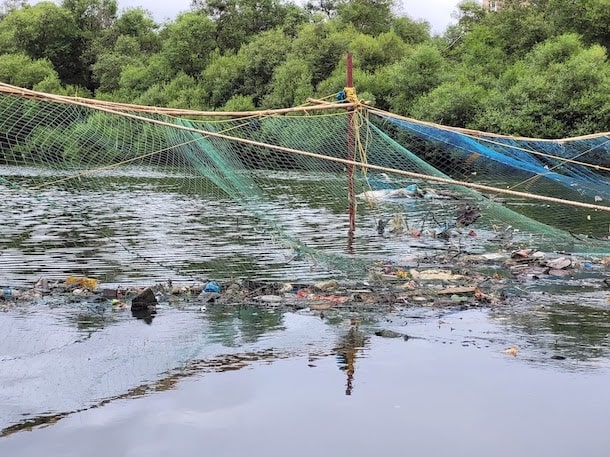Mumbai’s waste problem is no secret. According to a report published in Bombay Community Public Trust’s web portal, Mumbai generates approximately 7,025 tonnes of waste per day. In 2019, a news report cited the Central Pollution Control Board (CPCB), to state that Mumbai generates about 11,000 tonnes of solid waste every day which is one-third of the total waste generated in Maharashtra. This explains why the city’s landfills have been stretched to the limit and solid waste is now finding its way into creeks and rivers to endanger the livelihoods of indigenous communities.
An Innovative Solution to Mumbai’s Waste Problem
A report called the ‘New Catch In Town’ has been released by Bombay61 studio, in collaboration with Ministry of Mumbai’s Magic and TAPESTRY, that highlights an innovative solution to the impact of mismanaged urban waste on the lives and livelihoods of coastal Mumbai’s fishing communities.
Bombay61 Studio (B61), an innovative and experimental urban solutions think tank, along with the Ministry of Mumbai’s Magic (MMM), a collective that represents the creative and social power of Mumbaiker youth, and research entity TAPESTRY project, have co-created this solution with the Koli community, one which has traditionally served as the first line of defence when it comes to protecting the coastal ecosystem of the city.


